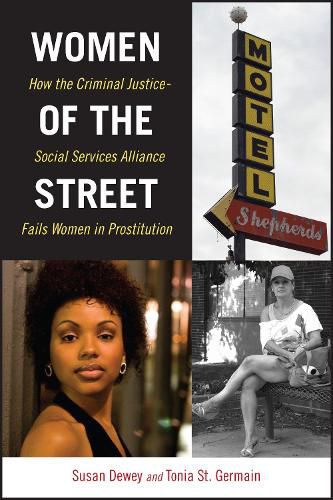Readings Newsletter
Become a Readings Member to make your shopping experience even easier.
Sign in or sign up for free!
You’re not far away from qualifying for FREE standard shipping within Australia
You’ve qualified for FREE standard shipping within Australia
The cart is loading…






Explores encounters between those who make their living by engaging in street-based prostitution and the criminal justice and social service workers who try to curtail it
Working together every day, the lives of sex workers, police officers, public defenders, and social service providers are profoundly intertwined, yet their relationships are often adversarial and rooted in fundamentally false assumptions. The criminal justice-social services alliance operates on the general belief that the women they police and otherwise regulate choose sex work as a result of traumatization, rather than acknowledging the fact that socioeconomic realities often inform their choices.
Drawing on extraordinarily rich ethnographic research, including interviews with over one hundred street-involved women and dozens of criminal justice and social service professionals, Women of the Street argues that despite the intimate knowledge these groups have about each other, measures designed to help these women consistently fail because they do not take into account false assumptions about street life, homelessness, drug use and sex trading. Reaching beyond disciplinary silos by combining the analysis of an anthropologist and a legal scholar, the book offers an evidence-based argument for the decriminalization of prostitution.
$9.00 standard shipping within Australia
FREE standard shipping within Australia for orders over $100.00
Express & International shipping calculated at checkout
Explores encounters between those who make their living by engaging in street-based prostitution and the criminal justice and social service workers who try to curtail it
Working together every day, the lives of sex workers, police officers, public defenders, and social service providers are profoundly intertwined, yet their relationships are often adversarial and rooted in fundamentally false assumptions. The criminal justice-social services alliance operates on the general belief that the women they police and otherwise regulate choose sex work as a result of traumatization, rather than acknowledging the fact that socioeconomic realities often inform their choices.
Drawing on extraordinarily rich ethnographic research, including interviews with over one hundred street-involved women and dozens of criminal justice and social service professionals, Women of the Street argues that despite the intimate knowledge these groups have about each other, measures designed to help these women consistently fail because they do not take into account false assumptions about street life, homelessness, drug use and sex trading. Reaching beyond disciplinary silos by combining the analysis of an anthropologist and a legal scholar, the book offers an evidence-based argument for the decriminalization of prostitution.